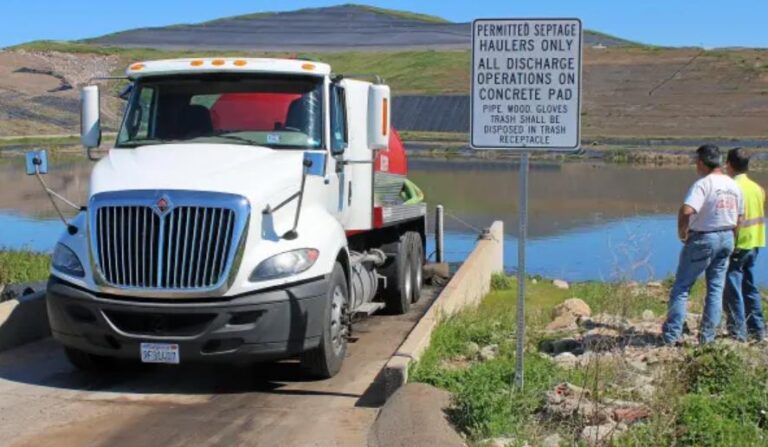What Is Escrow In Trucking? A Comprehensive Guide
This article will explain What Is Escrow In Trucking? The term escrow plays a fundamental role in the trucking industry, ensuring financial security and trust between parties. It acts as a buffer, safeguarding interests and assets during transactions. This mechanism is particularly vital in a sector where large sums of money are frequently exchanged and contractual obligations are pivotal.
Key Takeaways
- Escrow in Trucking: A financial safety mechanism for transactions.
- Purpose: Protects both truck owners and operators.
- Operation: Funds held by a third party until conditions are met.
- Benefits: Enhances transaction security, and mitigates risk.
What Is Escrow In Trucking?
In trucking, escrow is a financial agreement where funds or assets are held by a third party, usually a bank or a legal firm, until the fulfillment of specific contractual terms. It’s a common practice in large transactions, like the purchase of a truck, or in ongoing operational costs, such as maintenance and fuel expenses.

The Process of Escrow
- Initiation: Parties agree to terms and choose an escrow agent.
- Funding: The buyer or lessee deposits funds into the escrow account.
- Fulfillment: Upon meeting agreed conditions, funds are released.
Benefits and Challenges
- Security: Escrow provides a secure transaction environment.
- Trust: Builds confidence between unknown parties.
- Complexity: Can be complicated and require legal assistance.
Types of Escrow Accounts in Trucking
Different escrow accounts cater to various needs within the trucking industry. These include:
Maintenance Escrow
- Purpose: Ensures funds are available for vehicle upkeep.
- Function: A portion of earnings is set aside regularly.
Lease Purchase Escrow
- Goal: Facilitates the process of purchasing a truck.
- Method: Accumulates funds over time to buy the vehicle.
Importance of Escrow in Trucking Transactions
Escrow accounts in trucking transactions safeguard the interests of all parties involved. They provide a structured and secure method to handle payments, especially in scenarios with significant financial implications.

Ensuring Fair Play
- Protection: Both parties are assured of fair treatment.
- Dispute Resolution: Acts as a mediator in disagreements.
Long-term Financial Planning
- Savings Mechanism: Helps in budgeting for future expenses.
- Financial Discipline: Encourages regular saving habits.
Regulatory Compliance and Escrow
Compliance with legal and regulatory standards is crucial in trucking escrow arrangements. It involves understanding and adhering to:
Legal Requirements
- Contract Law: Ensuring the legality of escrow agreements.
- Financial Regulations: Following banking and finance laws.
Industry Standards
- Best Practices: Adhering to trucking industry norms.
- Transparency: Maintaining clear and honest communication.
Escrow Management and Administration
Effective management of escrow accounts is essential for their success. This involves:
Choosing the Right Escrow Agent
- Reputation: Selecting a trustworthy and experienced agent.
- Expertise: The agent should know the trucking industry.
Managing Escrow Funds
- Record-Keeping: Accurate documentation of all transactions.
- Regular Audits: Ensuring the correct handling of funds.
What Role Does a Third-Party Escrow Service Play in Freight Operations?
The involvement of a third-party escrow service in freight operations is crucial for maintaining financial integrity and trust. These services act as an impartial entity that holds funds or assets on behalf of the transacting parties.
This role is particularly significant in large-scale operations where substantial amounts of money are at stake. The presence of a third-party escrow mitigates the risk of fraud and ensures that all financial transactions are transparent and secure.

In freight operations, the escrow service usually comes into play during the purchase of trucks, lease agreements, or in managing operational expenses. The escrow agent is responsible for overseeing that all the terms of the agreement are met before releasing funds.
This arrangement is beneficial for all parties involved, as it ensures that the carrier fulfills their service commitments and the client pays for the services rendered, all within the agreed terms and conditions.
How Do Escrow Accounts Facilitate Fleet Maintenance and Upkeep?
Escrow accounts dedicated to fleet maintenance and upkeep play a pivotal role in the smooth operation of a trucking business. They ensure that a portion of the earnings is set aside specifically for the maintenance of the fleet.
This practice is vital for the longevity and efficiency of the trucks, which are the backbone of any trucking operation. Regular maintenance helps in avoiding major breakdowns, which can be costly and cause significant disruptions in service.
Furthermore, these escrow accounts aid in financial planning and budgeting for trucking companies. By having a dedicated fund for maintenance, companies can better predict their operating costs and avoid unexpected financial burdens.
This organized approach to financial management is essential in a sector where profit margins can be slim and operational costs high. Regular contributions to a maintenance escrow account exemplify prudent financial management, which is key to the sustainable growth and success of a trucking business.
What Is the Significance of Lease Purchase Escrow in Commercial Trucking?
Lease purchase escrow accounts hold a special place in the commercial trucking industry, particularly for independent truckers and small fleet owners.
These accounts are designed to facilitate the process of owning a truck through a lease-purchase agreement. In such arrangements, a portion of the trucker’s earnings is deposited into the escrow account over time, eventually enabling the purchase of the vehicle.

This system is particularly advantageous for those who may not have the substantial capital required to purchase a truck outright. It provides a feasible pathway to ownership, which is a significant step in the career of a trucker or the growth of a small trucking business.
Moreover, the gradual accumulation of funds through lease purchase escrow accounts makes the process of acquiring a truck less financially burdensome. It exemplifies a strategic approach to asset acquisition in the trucking industry, where owning a fleet is often correlated with business stability and potential for expansion.
How Does Escrow Ensure Compliance in Trucking Contracts?
Ensuring compliance in trucking contracts through escrow accounts is a method of reinforcing adherence to agreed-upon terms and conditions. The escrow account holds funds until all contractual obligations are fulfilled, which serves as a powerful motivator for both parties to adhere to their commitments.
This arrangement is especially important in long-haul trucking contracts, where the delivery of goods can take considerable time and involve multiple checkpoints.
In the context of compliance, escrow accounts serve as a tool for enforcing contractual terms such as delivery times, quality of service, and payment schedules. This mechanism provides a clear structure for dispute resolution, as funds are only released upon mutual agreement or fulfillment of contract specifications.
It essentially acts as a safeguard against non-compliance, ensuring that all parties are held accountable to their contractual obligations, thereby fostering a more reliable and professional business environment in the trucking sector.
What Are the Tax Implications for Trucking Companies Using Escrow Accounts?
The tax implications for trucking companies using escrow accounts are an important aspect of financial management in the industry. These accounts, while primarily used for managing transactional funds, also have significant tax-related considerations.
For instance, the way funds are deposited and withdrawn from escrow can affect a company’s taxable income. Regular contributions to a maintenance or lease purchase escrow account might be considered deductible business expenses, which can reduce the overall taxable income of the company.

Moreover, the timing of fund withdrawal from an escrow account can have tax implications. For example, withdrawing funds in a different fiscal year than they were deposited can impact the company’s financial statements and tax liabilities.
Trucking companies need to work with financial and tax professionals to understand the nuances of escrow accounts about tax laws. Proper management of these accounts can lead to tax efficiencies and better financial planning, which are crucial for the financial health and sustainability of trucking operations.
Conclusion
In the trucking industry, escrow is more than just a financial tool; it’s a cornerstone of trust and security. It provides a structured approach to managing finances, ensuring compliance, and fostering relationships based on reliability. Incorporating escrow arrangements into trucking transactions not only secures assets but also paves the way for sustainable business growth and success.
People Also Ask
How does escrow impact the overall cost of trucking services?
Incorporating escrow services into trucking transactions may slightly increase overall costs due to administrative fees. However, the financial security and risk mitigation it provides often outweigh these additional costs.
Is there a regulatory body overseeing escrow in trucking?
While there isn’t a specific regulatory body solely for escrow in trucking, these transactions fall under the broader scope of financial and contract law, which governs the use of escrow accounts.
What happens to the escrow funds if a dispute arises?
In case of a dispute, the escrow agent holds the funds until the dispute is resolved, either through mutual agreement between the parties or legal intervention. This ensures that the funds are not wrongfully released.
Can escrow arrangements be customized in trucking agreements?
Yes, escrow arrangements can be tailored to suit the specific needs and agreements of the parties involved in a trucking transaction. This flexibility allows for varied terms, conditions, and usage of the escrow account.

Welcome to the exhilarating world of Matt Rex, a professional car racer turned renowned vehicle enthusiast. Immerse yourself in his captivating blog as he shares heart-pounding adventures, expert reviews, and valuable insights on cars, trucks, jets, and more. Fuel your passion for speed and discover the beauty of vehicles through Matt’s engaging stories and meticulous expertise. Join the ever-growing community of enthusiasts who find inspiration and expert advice in Matt Rex’s blog—a digital hub where the thrill of speed meets the pursuit of knowledge.







